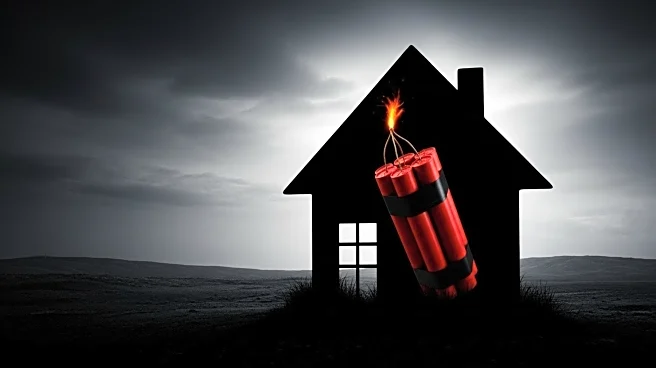What's Happening?
Kathryn Bigelow's latest film, 'A House of Dynamite,' premiered at the Venice Film Festival, showcasing a high-stakes narrative centered around an impending nuclear attack on Chicago. The film features Idris Elba as the U.S. president and Rebecca Ferguson as Captain Olivia Walker, a military communications lead. The ensemble cast includes Gabriel Basso, Jared Harris, Tracy Letts, and others. The film is set for a limited theatrical release in the U.K. on October 3 and in the U.S. on October 10, followed by a streaming launch on Netflix on October 24. Bigelow, known for her work on 'The Hurt Locker,' aims to address the ongoing dangers of nuclear warfare through this political thriller.
Why It's Important?
The film 'A House of Dynamite' brings attention to the persistent threat of nuclear warfare, a topic that remains relevant in global politics. By dramatizing the potential consequences of nuclear conflict, the film may influence public discourse on defense policies and international relations. It highlights the paradox of nuclear deterrence, questioning the logic of defense strategies that could lead to total destruction. The film's release could spark discussions among policymakers, defense analysts, and the general public about the need for renewed focus on nuclear disarmament and peacekeeping efforts.
What's Next?
Following its premiere, 'A House of Dynamite' will be released in theaters and on Netflix, potentially reaching a wide audience. The film's provocative theme may lead to debates and discussions in media and political circles about nuclear policy and global security. Stakeholders such as government officials, defense experts, and peace organizations might use the film as a platform to advocate for policy changes or increased awareness of nuclear threats. The film's reception could also impact Bigelow's future projects and influence the direction of political thrillers in cinema.
Beyond the Headlines
Beyond its immediate impact, 'A House of Dynamite' could contribute to a cultural shift in how nuclear warfare is perceived. By confronting the audience with the realities of nuclear threats, the film may encourage a deeper understanding of the ethical and moral implications of nuclear armament. It could also inspire filmmakers to tackle complex geopolitical issues, using cinema as a tool for social change and awareness. The film's exploration of leadership and decision-making in crisis situations might resonate with viewers, prompting reflections on the responsibilities of those in power.










